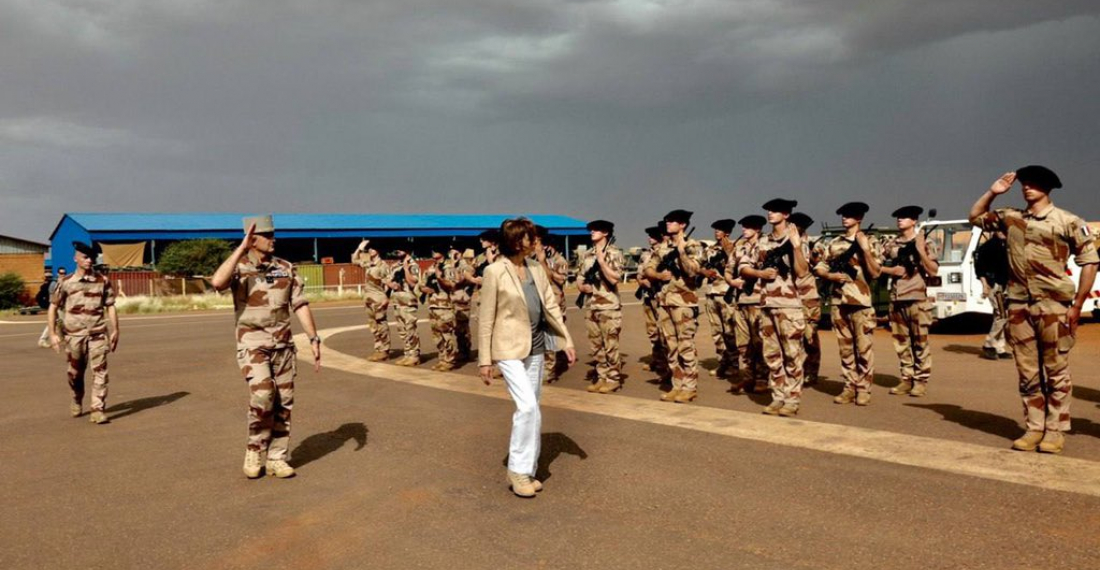Tensions continue to rise between France and Mali. “Unacceptable” and “indecent” accusations, which amount to “wiping ones feet on the blood of French soldiers” is how the Minister of the Armed Forces, Florence Parly, qualified, on Monday (27 September), the remarks made by the Malian prime minister, Choguel Kokalla Maïga, against France, on Saturday, at the tribune of the United Nations.
Indeed, during his speech at the UN General Assembly, Maïga accused France of abandoning Mali with its decision to withdraw the Barkhane force. The prime minister claimed that because of France's move to reconfigure its presence in Mali, the country had to find new ways to ensure its safety with the help of other partners, justifying the recruitment of mercenaries from the Russian paramilitary company Wagner.
During a conference in front of students from the prestigious French university Sciences Po Paris, Florence Parly added that “there is no French disengagement, I want to start by re-establishing untruths [...] When we have 5,000 soldiers and we disengage from three rights-of-way, and we intend to leave several thousand more, when state-of-the-art armoured vehicles are deployed in the Sahel […] this is not the normal attitude of a country which intends to leave.”
“It’s a lot of hypocrisy, it’s a lot of bad faith, a lot of indecency, especially because it was said on Saturday 25 September. However, on Friday 24 September, a 52nd French soldier gave his life to fight terrorism in the Sahel,” Parly said indignantly. A French soldier deployed as part of the Barkhane force was killed on Friday in Mali.
According to Parly, recruiting mercenaries from Wagner would represent a way to avoid keeping the commitments made by Mali vis-à-vis the international community regarding the elections that are planned for February 2022.
“I have the impression that the date” on which the Malian authorities - who came to power by a coup d'état in August 2020 - committed themselves “does not suit them perfectly, and that they want to prolong the thing. But from there to wiping your feet on the blood of French soldiers, it is unacceptable,” she said.
Choguel Maïga told Agence France-Presse on Sunday that the elections could be postponed for a few weeks or months. Following this statement, at the UN on Monday, Paris reiterated its call for legislative and presidential elections to take place on 27 February 2022 in Mali, in accordance with commitments made to the international community by the Malian junta currently in power.
Earlier on Tuesday, the spokesperson for the French foreign ministry said that “the transformation of [France's] military system in the Sahel is neither a departure from Mali, nor a unilateral decision, and it is wrong to say the opposite.” The adaptation of this device was the subject of “consultations with the Sahel and Malian authorities since the Pau summit in January 2020”.
The commander of the Barkhane force also refuted on Monday any lack of consultations and any abandonment. “The plan to leave Kidal, Tessalit and Timbuktu [...] was drawn up with the heads of state of the G5 zone” (which includes Mauritania, Mali, Niger, Burkina Faso and Chad), declared General Laurent Michon during a trip to Nouakchott, Mauritania, recalling that the peacekeepers of the UN Mission MINUSMA and the Malian army remained present in these three places.






